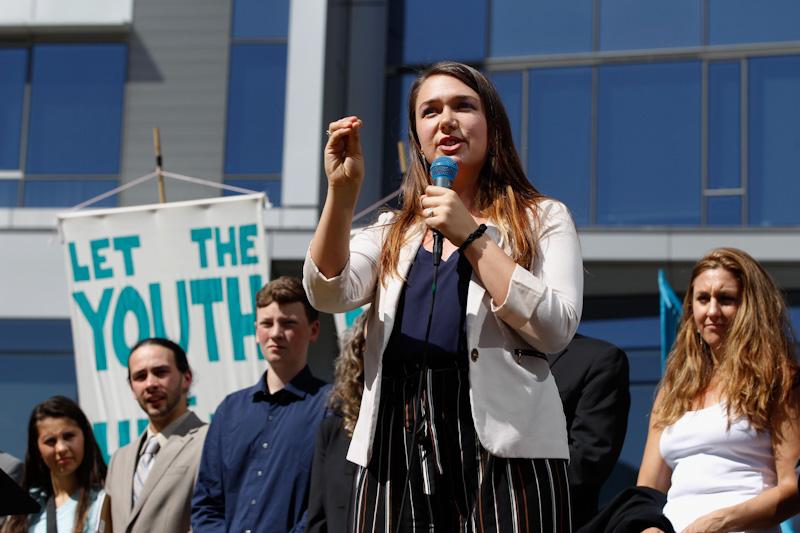U.S. Supreme Court Denies Certiorari in Landmark Climate Change Case
End of Juliana v. United States: Implications for Youth Advocacy and Climate Law
March 25, 2025, 2:01 pm CDT
Kelsey Cascadia Rose Juliana, the lead plaintiff in Juliana v. United States, speaking at a 2019 rally. (Photo by Steve Dipaola/The Associated Press)
The U.S. Supreme Court has decided not to review Juliana v. United States, a significant climate change lawsuit brought by a group of 21 young plaintiffs. They argued that the U.S. government has a responsibility as a trustee to protect the environment for future generations. This refusal to hear the case effectively ends the legal journey that began back in 2015.
Reports from respected outlets including Law360, Reuters, and the New York Times have confirmed that the Supreme Court’s decision to deny certiorari follows a precedent set by the 9th U.S. Circuit Court of Appeals. In a ruling from 2020, the appeals court stated that the matter should be addressed legislatively rather than through the judiciary, citing standing issues in a revised complaint submitted earlier this year.
Kelsey Cascadia Rose Juliana, now 29 and working as a teacher in Oregon, has emerged as a leading voice in this case, demonstrating a commitment to not only climate activism but also to legal advocacy for youth rights in environmental matters.
The U.S. Department of Justice stated in a March 24 press release that it has defended this case against multiple presidential administrations. Acting Assistant Attorney General Adam Gustafson described the Supreme Court’s denial as the conclusion of a lengthy legal saga for the federal government.
Despite the finality of this case, Julia Olson, chief legal counsel for the nonprofit organization Our Children’s Trust—which represented the plaintiffs—asserted that the lawsuit has sparked a broader movement. Olson remarked, “Juliana has ignited a movement and created a powerful legal framework for future generations to assert their constitutional rights in the face of the climate crisis.”
This sentiment is echoed by notable developments in related cases, which signify a growing recognition of environmental rights. For instance, in late 2024, the Montana Supreme Court invalidated a law that prohibited the consideration of greenhouse gas emissions in fossil fuel permitting, basing its decision on a state constitutional provision mandating a “clean and healthful environment.” Additionally, Hawaii reached an agreement with Our Children’s Trust to reduce carbon emissions from its transportation systems.
As the legal landscape surrounding climate change continues to evolve, the impacts of Juliana v. United States may resonate through future efforts, encouraging new legal challenges and legislation aimed at addressing the climate crisis and protecting the rights of younger generations.

